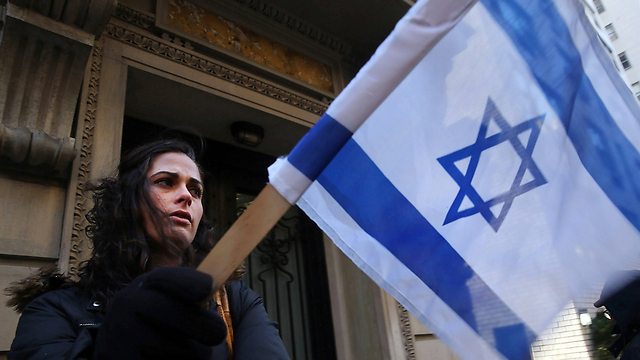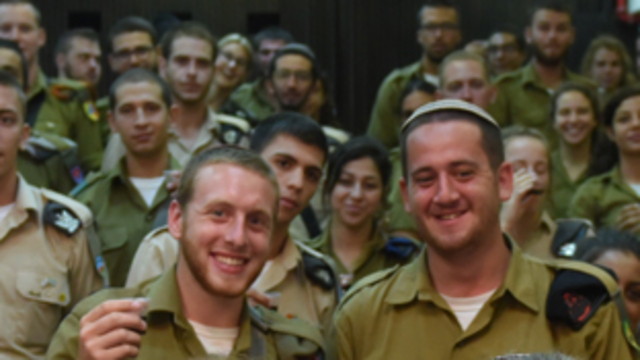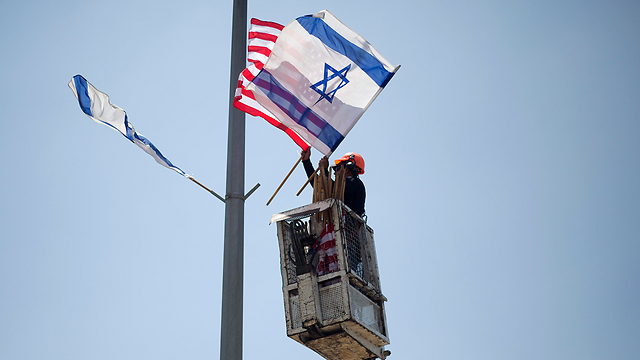Op-ed: They donate millions to the State of Israel, thousands of them serve in the IDF, they hold key positions in US public service and they are loyal to both countries. While the US Jewry is still showing an interest in Israel, Israelis’ ignorance about their American brethren carries a heavy price tag.
Following the row sparked by Deputy Foreign Minister Tzipi Hotovely’s comments about the differences between Israelis and American Jews, it’s clear to everyone that the time has come for deep-rooted change and repair.
I don’t mean another committee whose conclusions will be shelved, but rather thorough, systemic work by everyone: The government, the civil society and philanthropists in Israel and in the United States.
The public discourse reveals the difficult reality of a widening gap between Israel and US Jewry, and the conclusion that there is a need to reduce the differences in knowledge between us. Despite the special challenges the State of Israel is dealing with, US Jews are learning about Israel, showing an interest in the state and engaging with it.

On the other side, we Israelis are in a very different place. We don’t learn about the US Jewry, and many of us have never even met American Jews face-to-face. The Education Ministry’s official curriculum doesn’t include the history of the Jewish immigration to the US, it doesn’t share the tremendous success story of this community and its influence on American society, Israel and the entire world. It doesn’t deal with the challenges and changes they are undergoing as a society.
This lack of knowledge was evident in the deputy minister’s comments. Regardless of the timing and style, Hotovely’s remarks weren’t wrong, but they were made without context and misrepresented the general picture.
As involved as can be
Jews make up about two percent of the general US population, but their contribution to American society is immeasurably higher than their share in the population. They are patriots of both their countries, the US and Israel, and the vast majority of them don’t see any contradiction in that.
It’s important to understand that the US Army is not “the people’s army,” but rather an army of hired soldiers, which naturally attracts weaker populations that benefit from their service financially, rather than the Jews who are considered an elite. Nevertheless, at times of emergency and crisis, Jews contribute their share even more than their percentage in the population: During World War II, more than 600,000 Jews joined the US Army, and many of the fallen soldiers in US cemeteries are Jews. Even the US Air Force chief is Jewish.

The share of US Jews in public service, including in national security, is higher than their share in the population as well. There are six Jewish Supreme Court justices serving in the US today. The US Jewry is a leader in donations and private philanthropy, including support for the two ruling parties. Fifty percent of donations to the Democratic Party and 25 percent of donations to the Republican Party come from Jewish donors.
In 2006, then-US President George W. Bush issued a presidential proclamation designating the month of May as Jewish American Heritage Month, to mark the US Jewry’s contribution to American society and to humanity in general.
As for US Jews’ involvement in the IDF, it’s important to understand the overall picture. They enlisted to fight alongside the pioneers and the immigrants in Israel’s wars throughout the history of the Jewish Yishuv. Two American Jews were killed in the Battle of Tel Hai: Jake Toker and Wolf Scharf. Most Israelis have never heard of them.
Upon the state’s establishment, Jews from the Diaspora formed a unit of 3,000 volunteers, one-third of whom were Americans. Ninety percent of them enlisted for combat service, joining 200 other American Jews who had already arrived in Israel to fight for its independence.
For 70 years, the State of Israel took in thousands of Jewish American volunteers who arrived to serve in the IDF. The Nefesh B’Nefesh organization, for example, has helped some 6,000 Jewish American soldiers join the IDF from 2002. Sixty-eight Jewish volunteers from the US joined the IDF last August as part of an Immigrant Absorption Ministry project.
So when it comes to the US Jewry’s support for the IDF, there’s no doubt it’s one of the most impressive philanthropy enterprises the State of Israel has ever known. In the past decade alone, American organization Friends of the Israel Defense Forces (FIDF) has raised more than $400 million, which were used for students’ scholarships, rehabilitation and welfare for lone and underprivileged soldiers.
Israelis’ ignorance and unfamiliarity with the US Jewry carries a serious price tag. While in the past we were able to say that the Israelis don’t care about Diaspora Jews, today we experience highly alarming hostility and alienation. The alienation, hostility and ignorance can only be defeated through a deep systemic change.

Learning about the Diaspora Jewry is a key part of our history, present and future, and there must be room for it in the Education Ministry’s curriculum. Education Minister Naftali Bennett is also the Diaspora minister, and he has a golden opportunity to lead a systemic move and introduce Jewish people studies into the curriculum of every school in Israel.
Every Israeli who enters the gates of the Hadassah Medical Center should know who Henrietta Szold was and who were the Hadassah women; every Israeli who lives in Netanya should know who Nathan Straus was; every Israeli who immigrated from Ethiopia and the Soviet Union should know that his immigration and absorption project is a joint project of Israel and the US Jewry; every Israeli who voices an opinion about the Western Wall plan should learn about the Reform Movement and the Conservative Movement and the part they play in the Zionist enterprise.
It’s vital for every Israeli to know about the Jewish organizations that are leading the battle against the boycott movement in the US, and for every Israeli to meet a Jew who doesn’t live in Israel at least once in his life.
If only we succeed in leading a systemic change in the way the Israeli public learns about and knows the Diaspora Jewry, we will be able to raise a new generation of young Israelis who won’t accept the fact that their brethren don’t feel at home in Israel.
We must raise a generation here with a deep understanding of the implications of the rift on both sides of the ocean; a generation that will cry out against hostile comments on both sides; a generation that feels responsibility, solidarity and commitment towards the Jewish people in the deepest manner; a generation that will be able to fix things and mend the rift created by the previous generation.
As reported by Ynetnews
